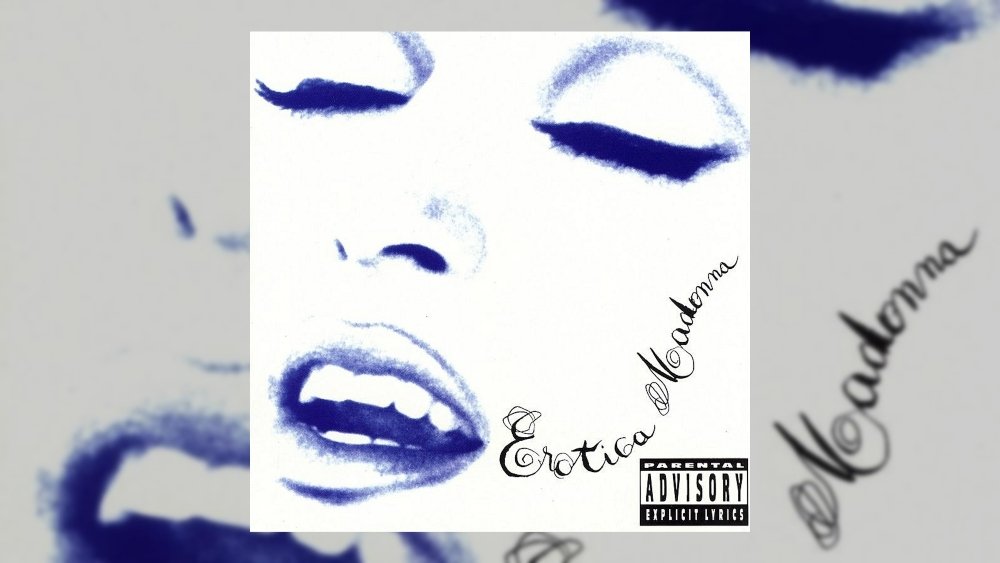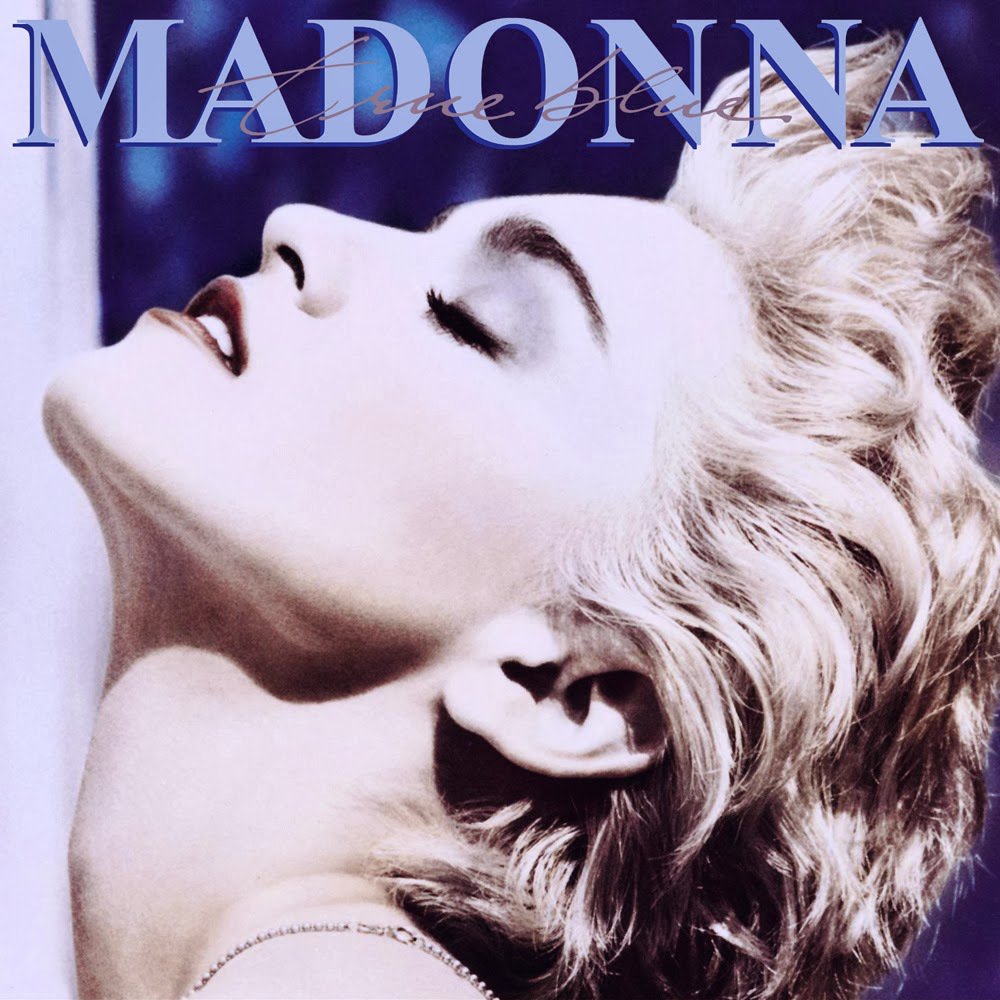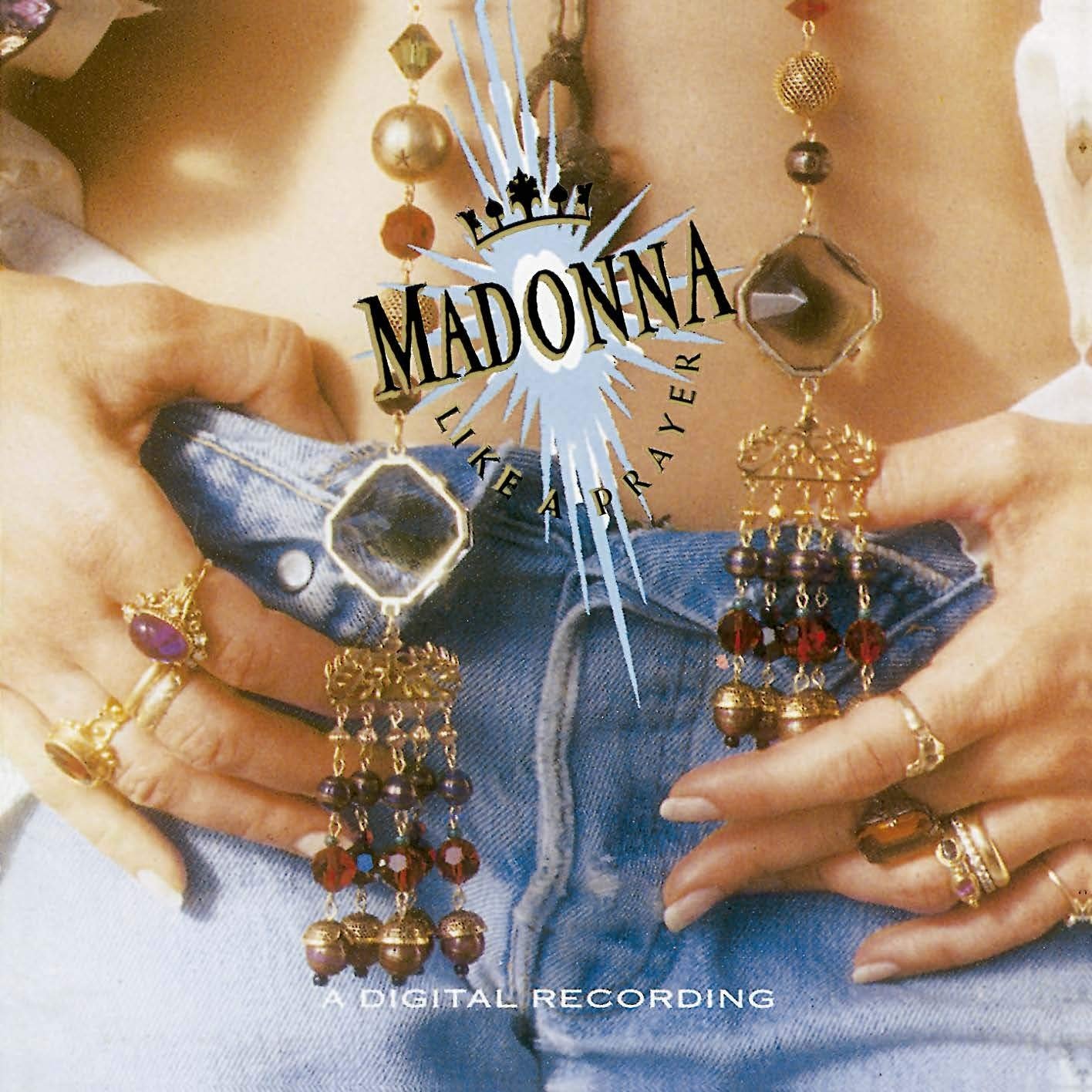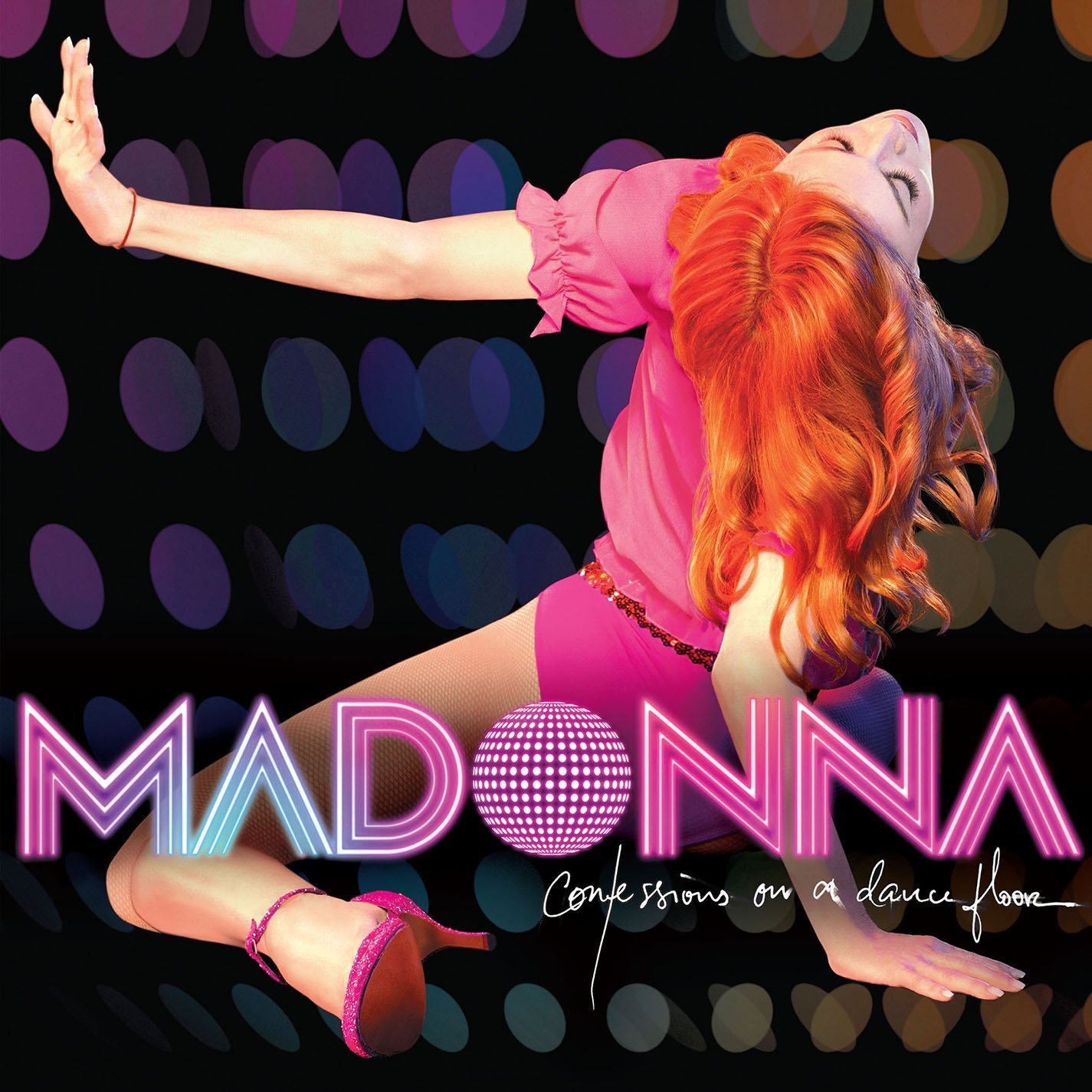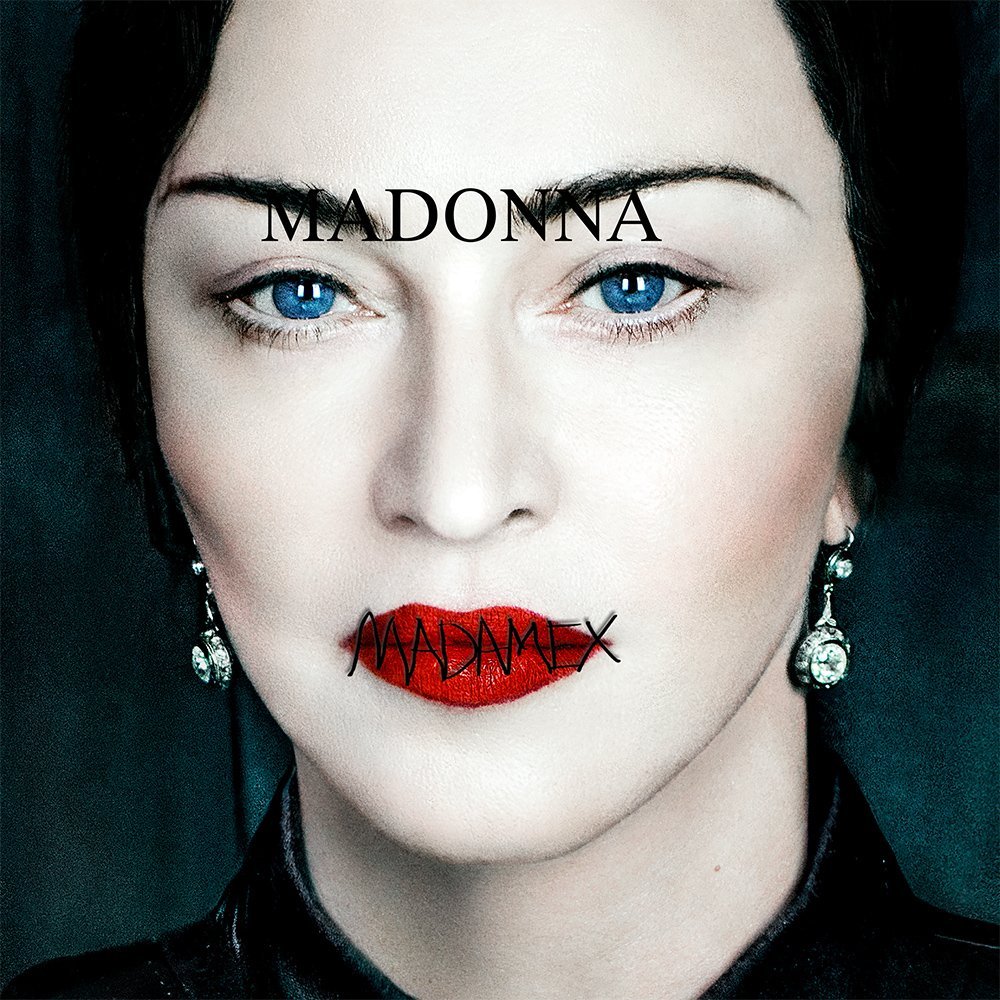Happy 30th Anniversary to Madonna’s fifth studio album Erotica, originally released October 20, 1992.
When Madonna unveiled her provocatively titled fifth studio album Erotica in the fall of 1992, three and a half years had elapsed since the release of 1989’s Like A Prayer, another in a string of consecutive commercial triumphs for Ms. Ciccone and arguably the most critically acclaimed song suite of her career.
In the intervening period, two notable LPs surfaced in May and November of 1990, respectively: I'm Breathless: Music from and Inspired by the Film Dick Tracy, a somewhat pedestrian affair within the context of her career discography, driven largely by the well-deserved ubiquity of the anthemic “Vogue,” and the cleverly branded The Immaculate Collection, her first greatest hits compilation which remains her best-selling record of all time.
Madonna also proved busy on the silver screen during this time, delivering one of the finest music documentaries ever made in 1991’s Madonna: Truth or Dare and co-starring in the entertaining, baseball-themed comedy-drama A League of Their Own released in July 1992. And lest we forget that in April 1992, Madonna co-founded Maverick Records, the Time Warner backed label that would hit the jackpot three years later by releasing Alanis Morissette’s massively successful 1995 album Jagged Little Pill.
Remarkably, though not surprisingly considering her workhorse stamina and relentlessly creative spirit, Madonna also found time within her busy schedule to conceive what is arguably her most ambitiously crafted album to date. With Like A Prayer, and albeit a long overdue development, critical perception of Madonna thankfully began to shift away from the predominant and superficial obsession with her persona that had endured since her eponymous debut album arrived in 1983. Instead, many of those who had previously relegated her musical identity and ability as secondary found it difficult to deny the salience and substance of her songcraft, though some of her more adamant detractors remained nevertheless.
“I think it’s boring,” an emboldened Madonna confided to Jonathan Ross in 1992, when asked about critics not taking her seriously as an artist. “But I think it’s a reflection of society. The subject matter I deal with, because it usually is about taboo subjects, people are so frightened of my ideas that they try to undermine my actual talent or any artistic value that may be in any of my work. And just say ‘oh she’s just doing that to shock people,’ or ‘oh, look, she’s changing her look again, she really knows how to manipulate the media.’ But the fact is if that’s all I was good at doing, I don’t think people would be paying attention to me for this long. I mean, I’m still here.”
So it was amidst this growing equilibrium of recognition between Madonna the powerful pop culture icon and Madonna the gifted songwriter-producer that Erotica—the first release to bear the Maverick logo—was born. Though those of us seasoned enough to remember the fall of 1992 will recall that the album’s October 20th arrival was very nearly subsumed within the media frenzy that engulfed the accompanying October 21st release of Sex—the companion coffee-table book featuring a series of heavily choreographed images by Steven Meisel that captured Madonna and others in various states of sexual exhibition and exploration. In some cases, Erotica was rendered an afterthought within the inflated brouhaha surrounding the book, as perhaps most glaringly evidenced by the October 1992 issue of Vanity Fair adorned with Madonna on the cover. Comprised of more than 7,600 words in total, the feature article-interview contains just a single reference to the album by name.
Watch the Official Videos (Playlist):
In retrospect, it remains unclear to what extent the book’s release galvanized sales of the album and vice versa. But 30 years later, it doesn’t really matter, as what has endured is the music. Meanwhile, Sex has largely been consigned to the realm of pop culture artifact, never to be flipped through again.
Far less shocking—or stimulating—to the senses by today’s more desensitized standards, to say that Erotica was controversial upon its release three decades ago is an understatement. But the flip side of the coin is that it was an undeniably revolutionary record. The unabashed and forthright way that Madonna redefines sexual identity and power dynamics, deconstructs sexual taboos, and evangelizes sexual freedom was indeed groundbreaking for its time, serving as a much-needed wake-up call for the sexually repressed and repressive, particularly here in the notoriously puritanical United States of America.
Across Erotica’s fourteen compositions (thirteen on the LP’s edited version), Madonna successfully subverts the antiquated, straight-male dominated dialogue about sex by taking full command of the conversation and delivering a clinic in sexual liberation. With confidence and charisma in droves, she flips traditional gender-driven roles and ethics on their head, blurs the socially-constructed lines between the multitude of sexual identities that exist, and gives mainstream voice and validation to those traditionally marginalized toward the fringes of social acceptance.
And while Erotica is a concept album of the most captivating caliber, whether you share or empathize with Madonna’s perspective or not, its thematic thrust all too often overshadows its importance within the context of its creator’s musical progression. Though her self-titled 1983 debut Madonna certainly incorporated club-driven inspirations, Erotica is the first of Madonna’s long players that found her wholeheartedly embracing the hedonism and influences derived from the dancefloor, an exciting evolution shepherded (pun intended) by co-producer Shep Pettibone that would be further cemented in increasingly glorious ways on subsequent efforts such as Bedtime Stories (1994), Ray of Light (1998) and Confessions on a Dance Floor (2005).
Hip-hop elements and drum breaks also abound across Erotica, thanks in large part to her continued collaboration with André Betts, who co-produced the Public Enemy indebted “Justify My Love” with Lenny Kravitz two years earlier. After finding unprecedented success with long-time collaborators Stephen Bray and Patrick Leonard in the ‘80s, pivoting to partner with Pettibone and Betts proved a shrewd move, ensuring that Madonna’s sound eluded stagnation.
The beat-heavy lead single and album opening title track begins with a needle drop upon a scratchy vinyl surface, signaling the album’s DJ-friendliness and promising something more rugged and raw than the polish of Erotica’s precursors. A spoken word ode to BDSM and the casting aside of sexual insecurities, an empowered Madonna presides over the ceremony through the adopted guise of the dominatrix Dita, declaring “I'll be your mistress tonight / I'd like to put you in a trance," later reassuring her subject that “If you're afraid, well rise above / I only hurt the ones I love.” This duality between pleasure and pain resurfaces two songs later on the sassy sixth and final single “Bye Bye Baby,” but from the perspective of fractured love, as Madonna interrogates her lover, singing “This is not a love song / I'd like to hurt you / What excites you? What turns you on? / What makes you feel good? / Does it make you feel good to see me cry? / I think it does / That's why it's time to say goodbye / Bye bye.”
Interestingly enough, despite the album’s title and the widespread scrutiny and sensationalism it engendered, songs that can be classified as “erotic” in content and tone are actually the exception, not the rule, across Erotica. The cheeky, Betts co-produced “Where Life Begins” certainly fits the title’s billing, with its ever-so-thinly veiled innuendo about cunnilingus, with lines like “Let's put what you've learned to the test / Can you make a fire without using wood / Are you still hungry; aren't you glad we came / I'm glad you brought your raincoat / I think it's beginning to rain.” Well, alrighty then.
Betts’ sonic touch appears on three additional tracks, including “Waiting,” a sequel of sorts to “Justify My Love” in its yearning for unrequited love. Included on the explicit version only, its companion composition “Did You Do It?” lifts the same sonic backdrop—replete with the rumbling, Doors sampled bassline that would be heard a year later on Souls of Mischief’s “That’s When Ya Lost”—and showcases the rhymeplay of Mark Goodman and Dave Murphy. An ode to personal perseverance and survival, the album concludes with the jazz-imbued breakbeat groove of “Secret Garden,” which operates as the thematic segue to “Survival,” the first track on Madonna’s 1994 follow-up album Bedtime Stories.
The album’s supreme standout is the second single “Deeper and Deeper,” a sublime slice of euphoric disco house that still sounds as fresh as ever, 30 years on. An invigorating anthem of sexual awakening, the narrative of “Deeper and Deeper” can also be interpreted through the lens of a man acknowledging and revealing his homosexuality, as perhaps best evidenced in the second chorus (“Deeper and deeper and deeper and deeper / Never gonna hide it again / Sweeter and sweeter and sweeter and sweeter / Never gonna have to pretend”) and the song’s fourth and final verse (“This feeling inside / I can't explain / But my love is alive / And I'm never gonna hide it again”).
Enjoying this article? Click/tap on the album covers to explore more about Madonna:
Among the three other singles officially released from Erotica, “Bad Girl” leaves the most enduring impression, and not just because of its memorable, Christopher Walken blessed video. A symphonic, drama-filled ballad about a tormented, self-destructive woman who’s wronged her lover by succumbing to temptation, the beautifully orchestrated “Bad Girl” reinforces Madonna’s penchant for crafting ballads that carry emotional weight without coming across as overwrought, a la her 1986 single “Live to Tell.” While the decidedly house-driven, percussive cover of “Fever,” originally popularized by Little Willie John in 1956 and two years later by Peggy Lee, is serviceable fare, the polished “Rain” is arguably the only banal offering among the album’s fourteen tracks.
The most painful and poignant moment appears with the somber “In This Life,” Madonna’s homage to two close confidantes who tragically lost their battles with AIDS—Martin Burgoyne, an artist and her first tour manager, and Christopher Flynn, her ballet teacher and mentor. Reminiscing about Flynn during a 2010 discussion with the film director Gus Van Sant for Interview magazine, Madonna reflected, “Growing up in Michigan, I didn’t really know what a gay man was. He was the first man—the first human being—who made me feel good about myself and special. He was the first person who told me that I was beautiful or that I had something to offer the world, and he encouraged me to believe in my dreams, to go to New York. He was such an important person in my life. He died of AIDS, but he went blind toward the end of his life. He was such a lover of art, classical music, literature, opera. You know, I grew up in the Midwest, and it was really because of him that I was exposed to so many of those things. He brought me to my first gay club—it was this club in Detroit. I always felt like I was a freak when I was growing up and that there was something wrong with me because I couldn’t fit in anywhere. But when he took me to that club, he brought me to a place where I finally felt at home.”
Just as refreshing and rewarding musically as it was for its brave social and cultural conscience, Erotica was, is, and will forever be a fearlessly fierce album that only Madonna could make. No one has ever come close to replicating it and no one ever will. In Vanity Fair’s October 1992 issue, Madonna proclaimed, “I’m out to open [people’s] minds and get them to see sexuality in another way. Their own and others.’” More than any other album in her prolific oeuvre, Erotica fulfilled her objective and struck a mighty blow to the plague of cultural and moral myopia, in America and beyond.
LISTEN:
Editor's note: this anniversary tribute was originally published in 2017 and has since been edited for accuracy and timeliness.

